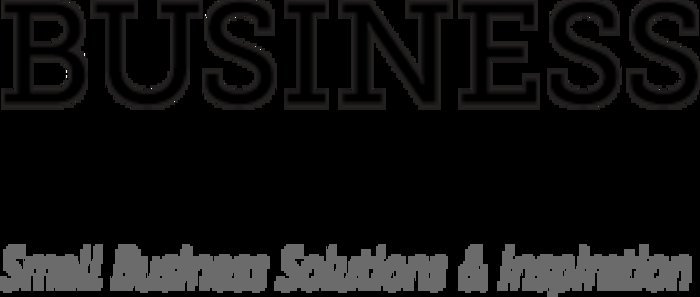Email, SMS marketing and digital file transfers may be the modern equivalent of sending a fax, but you would be remiss to sell the online fax industry short. According to a report by Arizton, online faxing was expected to grow into a $2.4 billion industry by 2022. Most of that growth will be largely driven by North American and European companies, many of which are in the highly regulated healthcare and financial industries.
The shift from conventional fax machines to online faxing will continue to be motivated by reduced upfront and maintenance costs, scalability through a software-as-a-service model, and a desire for more automation in day-to-day operations.
As the industry continues to grow and smaller players enter the mix, expect larger corporations to step in and buy out the competition. Major companies like J2 Global, which owns many key companies in the online fax industry, are constantly making moves to purchase and merge services under a single umbrella of brands.
A growing trend among tech companies of all stripes is the push to comply with the European Union’s General Data Protection Regulation (GDPR) and other consumer data protection legislation. Of particular interest for many services is the California Consumer Privacy Act, which went into effect at the beginning of 2020.
Given the borderless nature of the internet, online fax companies are left wondering how to react to the new legislation. It’s a similar situation to the GDPR, where some or all of the rules may not necessarily apply, but companies have to at least be aware of the rule changes.
April 2020: In a bid to make the ongoing coronavirus pandemic less disruptive for current and prospective clients, one trend within the online fax industry is to offer services for free or at highly discounted rates.
For example, Fax.Plus is offering its Enterprise annual plan to new accounts until the end of April. A free, cloud-based, HIPAA-compliant online fax solution could be a major boon to small businesses that need to continue sending a high volume of documents.
Some companies are offering more robust freebies during the crisis. RingCentral is not only giving away its online fax offering for a limited time, but it’s also putting up its VoIP phone service, a team messaging platform and the ability to host up to 200 people in an online video meeting for free. The company extends this offer to impacted healthcare providers, schools, community colleges, news and media organizations, public sector companies, and nonprofits that sign up as new customers during the crisis. Existing eligible Office Essential and Standard customers also get free access to this higher cap on video meeting participants.
While some companies are offering short promotions and others are giving away large portions of their products to eligible companies, some online fax providers have been helping in other ways. In recent weeks, Nextiva has provided technical support and some of its services to help the United Way run a pair of virtual telethons. As a result, approximately $2.6 million was raised to support communities battling COVID-19.
May 2020: With many healthcare providers throughout the country still dealing with the novel coronavirus, J2 Global is offering its recently introduced Consensus healthcare interoperability platform to providers that need an on-demand recovery solution for free.
Healthcare providers rely on several telecommunications methods to transmit sensitive patient data, including online fax. Consensus serves as a one-stop platform that “manages all incoming and outgoing patient documents including cloud faxes, direct secure messaging, patient query and API integration into exchanges,” according to a press release from J2 Global.
“Consensus can be used to quickly and securely obtain patient data on past and current conditions and treatments from a surrounding healthcare community,” said Nate Simmons, president of J2 Cloud Services. “This helps enable care teams to make better decisions at the point of care. Consensus can be used by providers with or without an electronic health record system (EHR). Some EHRs already connect to Carequality. If not, Consensus users now have the benefit of on-demand query for no charge.”
The hope is that emergency rooms, urgent care centers, specialty providers, telehealth providers, skilled nursing facilities (SNFs), durable medical equipment (DME) companies and others can utilize J2’s telecommunications capabilities to send and receive important patient data while it “lessens [the] burden for the entire healthcare community.”
“We are all deeply aware of the stress that the COVID-19 pandemic is putting on our healthcare system,” said Dave Cassel, executive director of Carequality. “Recognizing the need for patient information to flow seamlessly during this crisis, Carequality wants to ensure that as many clinicians as possible are able to take advantage of the nationwide connectivity the Carequality Framework provides. We have temporarily waived some prerequisites to access that make sense in normal times but can be removed to streamline access in extraordinary times.”
June 2020: A recent report on Gizmodo debunks a common misconception that online fax services are inherently secure. At a time when more people are working from home and relying on online fax to transmit documents, the tech site reportedly found tens of thousands of unsecured faxes filled with sensitive data like “invoices, government forms, family photos, checks, prescription information, bank account details, and Social Security numbers.”
In each instance, the tech site said the documents were found in unsecured Amazon Simple Storage Service (S3) file buckets. These virtual file lockers are used by many companies in many industries, and it turns out online fax solutions are no different. According to the report, these file buckets were publicly available, with files dating as far back as 2013. The issue, one expert told Gizmodo’s Dhruv Mehrotra, is that developers typically set the file buckets to public while they test the service and then fail to revert them to private. He said that sort of “it-won’t-happen-to-me attitude” often results in sensitive data breaches.
While the report doesn’t explicitly name any online fax services, it’s worth checking out the article before you choose an online fax solution. We stand by our best picks, but we also feel it’s important for you to know all the facts before moving forward with a service.
Read the full article here










